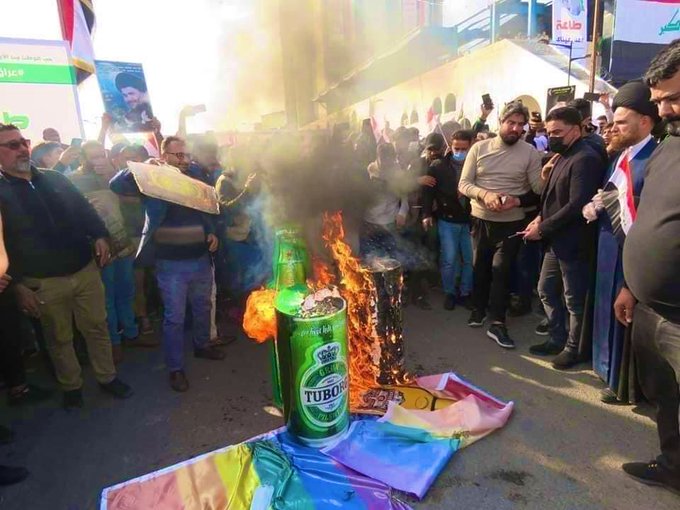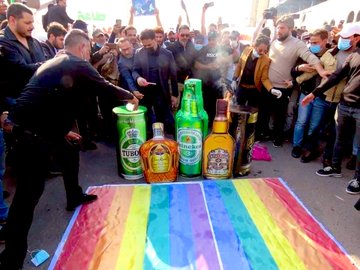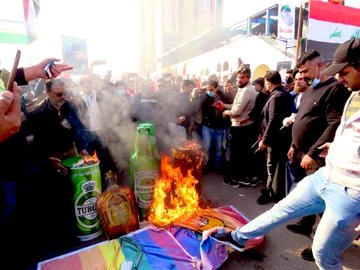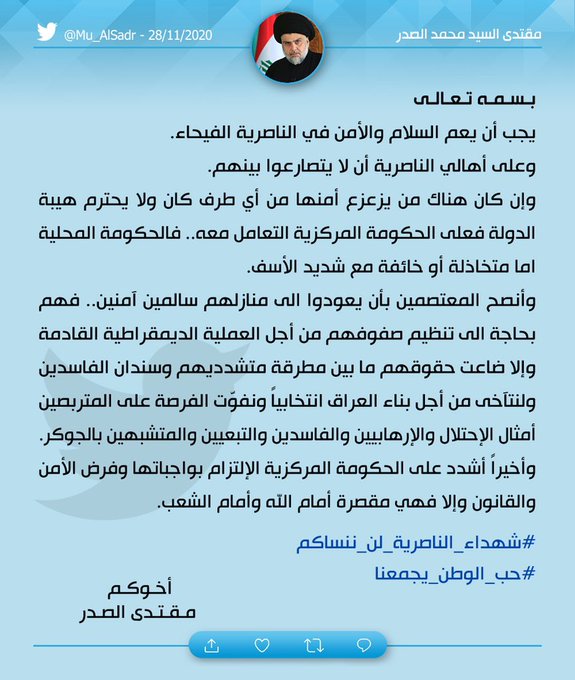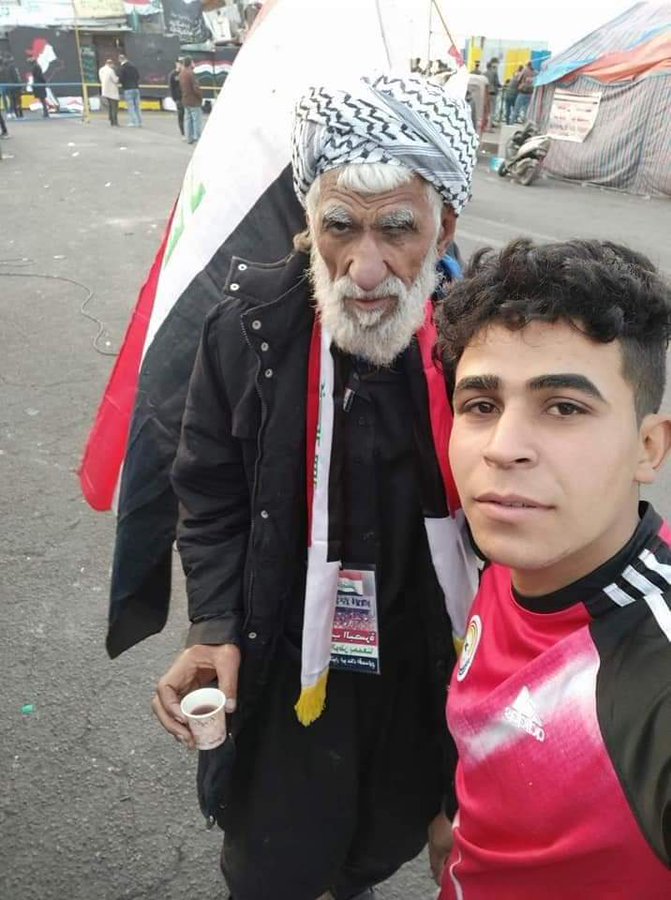As Joe Biden fills out his Cabinet, more attention is drawn to the position of attorney general and one of the most cited names on the short list, which is Sally Yates. Her consideration is surprising for a president-elect who has pledged to unify the country and move beyond the destructive politics of the last four years. I always admired the obvious talent and intellect of Yates. But my overall assessment of her changed dramatically almost four years ago, when she staged an epic battle with a newly inaugurated President Trump and thereby forged her own legend.
Yates had only a few days left in government when she became acting attorney general in January 2017, following the departure of Attorney General Loretta Lynch. One week later, Trump signed an executive order that restricted travel to the United States from seven Muslim majority countries. Yates then took the unprecedented step of ordering the Justice Department to refuse to assist the president in implementing the ban.
I was an early critic of the travel ban, which had glaring errors like the absence of exceptions for legal residents or green-card holders. (Those errors were corrected in an amended order.) The ban was an issue upon which Trump campaigned and won the presidency and he wanted to move in that first week to carry out some of his core promises. But the order was poorly drafted, poorly executed and, ultimately, poorly defended. Yates could have worked with the White House to seek changes, as would later occur; instead, she ordered a federal department to refuse to assist the president.
In issuing her order, Yates dismissed a review by the Justice Department’s Office of Legal Counsel which found the order to be lawful. Yates did not expressly reject that conclusion; she simply stated that she was not convinced the order was “wise or just” or was “lawful.” It is not the job of Justice Department attorneys to decide if a president is acting in a “wise or just” manner but, instead, only if the action is lawful. If Yates felt the order was unlawful, she could have resigned, as did Attorney General Elliot Richardson and Deputy Attorney General William Ruckelshaus in the infamous “Saturday Night Massacre” under President Nixon. However, she apparently did not want to be known simply as someone who resigned a few days before she was scheduled to leave office.
Yates knew exactly what she was doing, and what Trump would have to do: He rightfully fired her. It was a brilliant political move by Yates. With only a couple days left in her post, Yates engineered her own firing and became a self-made hero for Democrats everywhere. It did not matter that former Justice officials, including outspoken critics of Trump, questioned whether her action was ethical or justified. Former Justice official and Harvard professor Jack Goldsmith pointed out that Yates neither determined the immigration order to be unconstitutional nor cited any basis for refusing to defend it. Accordingly, he said, Yates left the impression of “insubordination that invites the president to fire her.”
Yates knew that she would be fired and her replacement would carry out the obligations of the Department to assist the President of the United States. Many of those lawyers did not agree with the travel ban but they did they job as they had promised to do in representing the United States. Yates maintained afterward that she believed the ban might still be discriminatory, even with revisions. This was a question that divided career attorneys inside the Department and the OLC had found the order presumptively lawful. These lawyers proceeded to defend the order (and later amended versions) to allow the courts to address the issue of discrimination.
Yet the media followed the rule cited by the newspaper editor in the movie, “The Man Who Shot Liberty Valance” — “When the legend becomes fact, print the legend.” The legend of Sally Yates lived on. Indeed, she made sure it did. She was given a high-profile speaking role at the Democratic National Convention, as the personification of a new Justice Department’s commitment to the rule of law. She declared: “I was fired for refusing to defend Trump’s shameful and unlawful Muslim travel ban.” The problem is that her statement is untrue. She never declared the order unlawful.
Sally Yates is not fit to serve any administration. She made that clear in her brief time as Attorney General. We need lawful people, not drama queens.
"Iraq snapshot" (THE COMMON ILLS):
Monday, November 30, 2020. Shiite cleric and cult leader Moqtada al-Sadr has unleashed his goons on the peaceful protesters resulting in many deaths and injuries.
Friday saw an attack on the peaceful protesters in Nassariya. This was an attack, it was not a ''clash.'' The protesters had been in al Haboubi Square for some time. When Prime Minister Mustafa al-Kadhimi ordered the Baghdad square attacked and the tents torn down a month ago, he attempted something similar in Nassaiya. It did not fly in the city, it did not fly in the province (Dhi Qar Governorate). Mustafa had to back down and the protesters continued their peaceful protest. As Sinan Mahmoud (THE NATIONAL) observed yesterday, "The coronavirus and violence against demonstrators has seen the moement slow elsewhere but it endures in Nasiriyah."
Friday, they were attacked. The death toll has now risen to 16. With over 80 more left injured that number could continue to increase.
Shi'ite cleric Moqtada al-Sadr ordered the attack. Dilan S. Hussein (RUDAW) reports that Moqtada told his cult to "clean up the 'atheism' that he said had taken over the city's streets" before sending them out on Friday. They arrived at the square with loaded guns, in four-wheel vehicles and with props.
Basra journalist Mohammed Qasim Tweets:
Moqtada gave the orders and then sicked his rabid cult on the protesters.
This was a planned assault. Not only does the Iraqi government need to disarm his goons, they need to put them on trial. Equally true, it was not necessary for the cult to enter the town square (al Haboubi square) -- where the peaceful protesters were -- and have been for over a year -- in order to get to any destination. They chose to enter that square, they did so with props and they did so with guns. And they chose to enter the square in "four wheel drive vehicles." This was not a 'clash,' it was a planned assault.
A day after the attacks, his goons staged a show of support this weekend . . . in Baghdad. They live in Baghdad. In a slum known as Sadr City. He's their grand hero but they live in a slum. Maybe that should have the cult's first clue that Moqtada isn't so heroic and isn't leading them to a better life? In Nassariyah, the turnout came from those who oppose Moqtada.
On Friday, after they killed and injured, Moqtada praised them on his Twitter feed. RUDAW: "He then took to Twitter on Friday to thank his supporters for mobilizing." Then Tweets like this popped up.
The United Kingdom's Ambassador to Iraq Stephen Hickey Tweeted:
I condemn the violence against protesters in Nasiriya and other cities. There can be no justification for such senseless killing. I call on the Iraqi authorities to protect peaceful protesters from attacks, and to bring to justice those responsible.
The US Embassy in Iraq Tweeted:
The United States condemns the violence against peaceful protestors that took place in Nasiriyah, Dhi Qar today. These unjustifiable acts of violence have no place in a democracy. 1/2
THE BAGDAD POST points out that the United Nations also called out the assault. Sensing the heat, Moqtada has attempted to back pedal. John Davison of REUTERS Tweets:
And he's said to have fled the country, departing the airport in Najaf for Beirut. That is his long-standing pattern -- flee the country whenever he thinks he might be arrested.
TELESUR reports that Moqtada's cult used more than guns -- they also attacked the protesters with knives, batons and stones. And the attack wasn't just in Nassirya. SHAFAQ NEWS reports they attacked the Kut square in Wasit Province -- where they teamed with Mustafa's security forces for the attack -- and that protestor Hussein Kata'a set himself on fire in protest.
protester Hussein Kataa set fire to himself in protest against the incursion of the repressive forces into wasit's sit-in square for the purpose of ending the sit-in. Preliminary reports indicate his death
Hussein is pictured in the Tweet below:
KURDISTAN 24 offers this context:
It's not the first time Sadr's armed supporters, often called “Blue caps” by government protestors, have used violence at the demonstrations.
In February, a brutal crackdown they carried out against protesters in the southern city of Najaf resulted in the deaths of at least eight and as many as 100 wounded.
Kirk H. Sowell, the principal of Middle East-focused political risk firm Utica Risk Services, told Kurdistan 24 that Sadr’s more hostile position towards protestors goes back to January and February, not long after a meeting of representatives of Tehran-backed militias was held in Iran.
The groups met to unite on the decision to expel American forces from Iraq. This came after the Iraqi parliament held an extraordinary session on Jan. 5 to vote on a non-binding resolution for the Iraqi government to expel foreign military troops in Iraq.
“There was a meeting in Qom; Sadr, Amiri, other Iran-aligned groups, and they stopped fighting one another. Right after that, the “Blue Cap” phenomenon arose; these were like enforcers, and Sadr abolished them in February after I presume he realized they were drawing too much attention to his thuggery,” he said.
However, the tensions continued and pro-Sadr groups continued to attack anti-government protestors.
Sowell said, “My view is that Sadr decided that the strength of the fall 2019 protests was such that he couldn't co-opt or manipulate them, so he had to crush them.”
“From 2015-2018, you may remember Sadr was working with protesters, or at least some protest groups, most notably the ICP (Iraqi Communist Party). But the Sadrists and the ICP split in 2019. They all saw the writing on the wall.”
Sadr has been an unpredictable character, and as demonstrations continued, he switched his position in his support for the movement back and forth multiple times, with some protesters considering him a cynical politician who attempted to steer the crowds to his benefit.
ARAB WEEKLY notes this morning:
Demonstrations that Iraqi Shia cleric Moqtada al-Sadr hoped would serve as a “popular referendum” backing his movement’s ambitions to form a government after the next elections have dealt a big blow to him and his movement.
The protests have brought bad publicity to him and estranged him from a large swathe of the Shia street in Iraq.
To make matters worse, signs of a rift within the Sadrist movement have emerged, with the announcement by one of its factions that the movement no longer represents them and does not meet their aspirations for reform after its suspected involvement in the shedding the blood of demonstrators who are not affiliated with it in the city of Nasiriyah, the centre of Dhi Qar governorate in southern Iraq.
ARAB WEEKLY notes the political backlash that Moqtada is now experiencing with many politicians calling him out -- including Iraq's previous prime minister Hayder al-Abadi.
Joel Wing (MUSINGS ON IRAQ) points out:
Sadr tried to co-opt the protests that started in October last year. In January 2020 however he withdrew his support and then in February Sadrists assaulted activists in Babil and Najaf leading to 12 deaths. It was apparent from the start that Sadr was only using the demonstrations to further his own political goals. By joining with the protests he was maintaining his image as an outsider from the political elite and standing with the youth. When he had no more use for them however he turned on them and used violence to let them know how vulnerable they were. This has been Sadr’s M.O. since 2003. He continues on with his father’s populist nationalist message while his armed adherents have fought and eliminated his opponents. Thus he talks about being a reformer while killing people in the streets.
This is an important issue and it's all the more important that those outside of Iraq talk about this. Iraqis are being threatened on social media for speaking out against Moqtada's attack. I have numerous e-mails this morning from community members in Iraq asking where is the western media? It's a very good question.
We've been covering the closure of the displacement camps in Iraq -- and the lack of places for the displaced to go -- since October. The issue continues. The United Nations Office for the Coordination of Humanitarian Affairs issued the following:
From 2014-2017, more than six million Iraqis were internally displaced by violence perpetrated by the Islamic State in Iraq and the Levant (ISIL) and subsequent Government of Iraq operations to defeat them. Since large-scale military operations against ISIL concluded in 2017, some 4.8 million internally displaced persons (IDPs) have returned home. As of 1 October, approximately 1.3 million people remained in displacement, including approximately 250,000 in 43 formal IDP camps. Many of the remaining IDPs face significant barriers preventing an end to their displacement, including: lack of civil documentation required to travel domestically or use public services; lack of housing and services, due to destruction and other causes; the presence of explosive remnants of war in home areas; and threats to their safety and security, including due to perceived affiliation to ISIL.
On 8 October 2020, the Government announced the closure of all remaining IDP camps. In mid-October 2020, the Government began efforts to close and consolidate IDP camps and by 31 October, 436 households (2,370 individuals) had departed six camps and large informal sites in Al-Anbar, Baghdad, Diyala and Kerbala. Families who left camps and sites in these four governorates were sometimes compelled to do so at short notice. In at least two cases, families being moved back to areas of origins became stuck at checkpoints for hours, without food or water, due to lack of advance coordination between security actors.
On 30 October, the Humanitarian Coordinator released a press statement noting that the decision to close and consolidate camps was taken independently of the United Nations and that primary responsibility for the protection and welfare of IDPs rests with national authorities. The United Nations continues to coordinate with the Government on humanitarian issues.
Chloe Cornish and Asmaa al-Omar (FINANCIAL TIMES OF LONDON) add, "Most of Iraq’s displaced people are in the northern Kurdistan region. Unlike Baghdad, the Erbil administration has not decided to close camps, according to Hoshang Mohamed Abdulrahman, director-general of the Kurdistan Regional Government’s Joint Crisis Co-ordination Centre."
